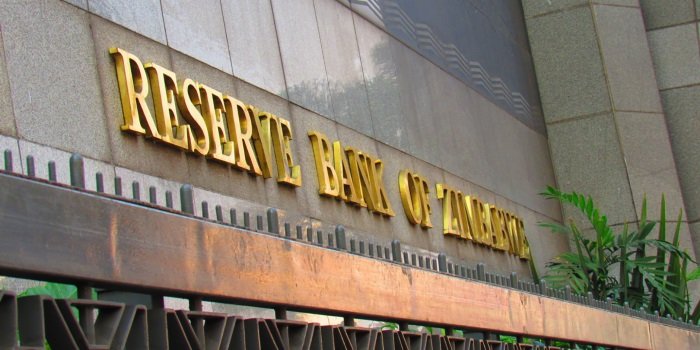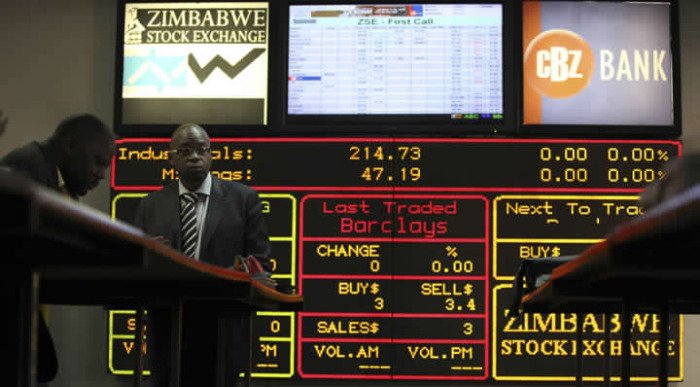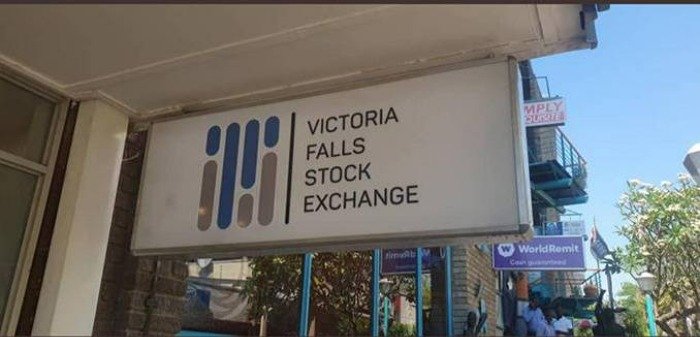The Zimbabwe Stock Exchange (ZSE) has submitted amended bond market listing guidelines to the Securities and Exchange Commission of Zimbabwe (SECZ) for approval, in an attempt to revive the bond market, the Financial Gazette's Companies & Markets (C&M) can report.
The local bourse, whose mandate is to provide a regulated platform for the mobilisation of long-term capital and the trading of securities, has also proposed a bond pricing framework which is under discussion with the regulator.
Together, the moves are meant to bring more capital to the local market to ease a tight liquidity situation on the market.
Speaking exclusively to C&M, the Zimbabwe Stock Exchange chief executive officer, Alban Chirume, said the local bourse had submitted its revised listing requirements for the debt market to SECZ, a regulatory body for securities and capital markets in Zimbabwe.
This will pave way for the re-launch of the debt market.
"ZSE believes that the environment is ripe for the re-launch of the debt market as appetite from issuers and investors is high," said Chirume.
"We have revised the listing requirements for the debt market and these were approved by the ZSE board and we now await regulatory approval.
"We also drafted a pricing framework for the debt market, which is currently under discussion with the regulator. We consulted widely on the listings and the pricing frame works. Input was received from Insurance and Pensions Commission (IPEC), Public Accountants and Auditing Board, stockbrokers, asset managers, potential issuers and financial advisors," he said.
There have been pockets of successful bond issues that have been done since 2009 when Zimbabwe dollarised.
What quickly comes to mind is the Bindura Nickel Corporation's US$20 million bond issue this year to finance the restart of its smelter; CBZ's US$20 million bond issue in 2012 meant to finance infrastructure development; IDBZ's US$30 million issue (2012) to finance the procurement of prepaid meters; and the ZB Bank's US$10 million Agri-bills.
Three months ago, IPEC, the body governing the operations of insurance and pensions industry in the country, indicated that players were holding bonds with prescribed asset status worth US$437,8 million.
When a bond is accorded prescribed asset status, it enables portfolio managers in insurance and pension funds to fulfil their obligations in terms of the law which requires that a certain percentage of their investments should be in the form of prescribed assets.
IPEC recently recommended to the Ministry of Finance and Economic Development that all future bonds should bear prescribed asset status in terms of section 26 of the Insurance Act and section 18 of the Pension and Provident Funds Act.
The ambit of prescribed asset was then broadened and the projects must be of national importance and should have benefits that are shared across a number of stakeholders at national level and fall within the infrastructural development such as low cost housing, energy or agriculture sectors of the economy.
Chirume, believes there are more than US$1,2 billion worth of bonds and Treasury Bills (TBs) already in the market which could become tradable on the bond market with the revival of a regulated ZSE trading platform for bonds.
According to a recent Reserve Bank of Zimbabwe report, local commercial banks and building societies were holding on their balance sheets TBs worth about US$800 million.
Government and corporations dominated the issuance of bonds on the then Rhodesia Stock Exchange.
The bond market on the ZSE remained significant until the 1990s. But after 2001, the bond market became dormant, with corporations relying primarily on equity financing.
According to the International Monetary Fund (IMF), bond financing has grown compared to other forms of financing in emerging economies.
In a report released this year, the IMF indicated that equity finance dropped from 1,7 percent of emerging economies' combined gross domestic product (GDP) in 2008 to 0,5 percent last year.
At the same time, bond issuances increased from about 0,8 percent in emerging markets' GDP in 2008 to 3,3 percent in 2015.
"As the Zimbabwean markets evolved, equities took over and today we have a market that survives largely on trading equities," said Chirume.
The bond market became dormant in 2001, with corporations relying primarily on equity financing.
"But, the current skew towards equities on ZSE excludes a significant portion of saving pools, among them international pension funds that naturally seek a home in long-term fixed return instruments."
Zimbabwe requires approximately US$33 billion in the next two decades, according to the World Bank, which translates to at least US$1,65 billion each year, for infrastructure development.
The African Development Bank also estimates that Zimbabwe requires about US$14,2 billion at 2009 constant prices, including US$4,6 billion of private investment, to upgrade existing infrastructure and build new capacity between 2011 and 2020.
Currently, there is a shortage of prescribed assets in the country. In 2011, pension funds recommended to the Minister of Finance that they should be allowed to invest 15 percent of their funds into offshore investments.
The debt market can mobilise some of the resources while offering investors with alternative investment products. The ZSE lobbied for foreign underwriters to be allowed to participate in local security issues and the RBZ granted this year that these could underwrite up to US$10 million.

































